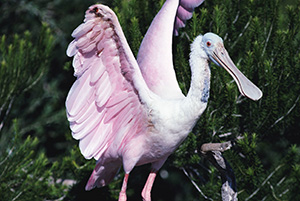
It has been shown that persons most affected by the avian flu are those who live in less-than-sanitary conditions and whose immune systems have been compromised because of age, sickness, lifestyle or lack of appropriate immune system response.
by Dr. Howard Peiper —
The avian flu virus is a specific type of influenza that primarily affects birds, but recently has been reported to affect pigs, cats and humans. While rare in humans, the virus often causes serious disease or fatality when people do contract it. The virus that causes avian flu is a sub-type of the influenza-A virus that is known to cause the flu in humans and is associated with influenza epidemics and pandemics.
New variations of this virus arise when susceptible animals, like pigs, ducks, chickens and humans, live together in close proximity. The current avian flu virus is a highly virulent sub-type that has spread more rapidly, with a higher degree of mortality than any other bird flu strain in history.
The virus has been shown to exist in saliva, nasal secretions and feces for about nine days and could affect humans who come into close contact with infected birds or birds that died from the illness. Direct contact with bird droppings or contaminated feed, water, clothing, cages, farm equipment and other surfaces is thought to be the transmitter, although there are no clearly documented cases of the recent avian flu virus spreading from human to human. Eggs and egg products, as well as frozen or adequately cooked poultry products, are unlikely sources of infection.
The most frequent symptoms associated with the avian flu include fever (101 to 104 degrees F.), cough, shortness of breath and swollen lymph nodes. Other common symptoms are sore throat, rhinorrhoea and muscle pain. Shortness of breath is an early symptom that can develop into a severe acute respiratory syndrome. On rare occasions, conjunctivitis or gastrointestinal symptoms might appear.
The World Health Organization, the United Nation’s Food and Agriculture Organization and the World Organization for Animal Health are treating the recent outbreaks of avian flu very seriously. Drastic measures are being taken to destroy affected birds and, therefore, remove the animal reservoir of avian flu viruses. Current conventional drugs used to treat the influenza virus have proven to be relatively ineffective against the present strain of avian flu.
A naturopathic approach to prevention and treatment
Regular, rigorous hand-washing with water hotter than 120° F, using soap and/or detergent is recommended to decrease the likelihood of infection and prevent the spread of the virus. The best way to ensure that the avian flu does not cause signs and symptoms in humans is by maintaining an optimal innate immune system through the following steps:
- Minimize sugar and saturated fat intake.
- Consume healthy protein with every meal (nuts, seeds, legumes, fish) and take a good plant digestive enzyme.
- Decrease lifestyle stressors and maintain optimal sleep and rest patterns.
- Include a daily cleansing routine that includes dry skin brushing, contrast showers and deep breathing exercises.
- Exercise a minimum of three times a week for at least 30 minutes.
- Drink a minimum of six glasses of water (with electrolytes) a day.
- Work with your naturopathic or holistic doctor to determine what individual recommendations are required.
To avoid contamination, heat whole poultry to at least 185° F for 30 minutes before eating. Heat eggs and other poultry products to at least 170° F and avoid high-risk areas that are known to have had infestations of the virus in their livestock.
If you have any symptoms of the avian flu and you have been in contact with birds, contact your doctor immediately. Humic acid is a good preventative because, as a viral infusion inhibitor, it acts non-specifically to coat viruses, prohibiting them from spreading throughout the body. These trapped viruses are then eliminated from the body as part of the immune response.
Not only does humic acid act as a preventative, but it also can reduce the proliferation of existing virus, thus limiting the severity of the flu. Since it is non-specific, it works equally well for any viral condition, including hepatitis and common flu strains that spread quickly during the winter months. (Humic acid can be found at www.longlifecatalogs.com.)
As part of the treatment, your naturopathic doctor may also recommend:
- Botanical or homeopathic therapies to fight the infection.
- Specific supplements, based on individual signs and symptoms, to increase the body’s ability to fight the infection and to restore balance to the body: Rhodiola rosea (with electrolytes) to help with stress; polysaccharidepeptides (alpha ycan) to build up the immune system and silver (crystalloid) to destroy the virus (www.naturespathsupplements.com).
- Strict dietary changes to support immune function, maximize nutrients and increase the effective role of the digestive tract with plant digestive enzymes and acidophilus.
- Blood work, chest x-ray or other laboratory tests to help identify the cause of the signs and symptoms.
- Isolation of infected people with mandatory personal protective equipment, including a high-efficiency mask (N-95), gloves and gown provided by their healthcare providers.
It has been shown that persons most affected by the avian flu are those who live in less-than-sanitary conditions and whose immune systems have been compromised because of age, sickness, lifestyle or lack of appropriate immune system response.
However, by following these naturopathic recommendations, we can improve our resistance to the disease.
Dr. Howard Peiper works in the field of naturopathy and has authored many books including Live Disease Free, Low Carb and Beyond, The Secrets of Staying Young and The A.D.D. and A.D.H.D. Diet. www.safegoodspub.com. or www.walkthetalkproductions.com.
Reprinted from AzNetNews, Volume 24, Number 6, December 2005/January 2006.





December 13, 2013
Flu, Food, Nutrition and Diet, Health, Health Concerns, Inflammation, Natural therapies